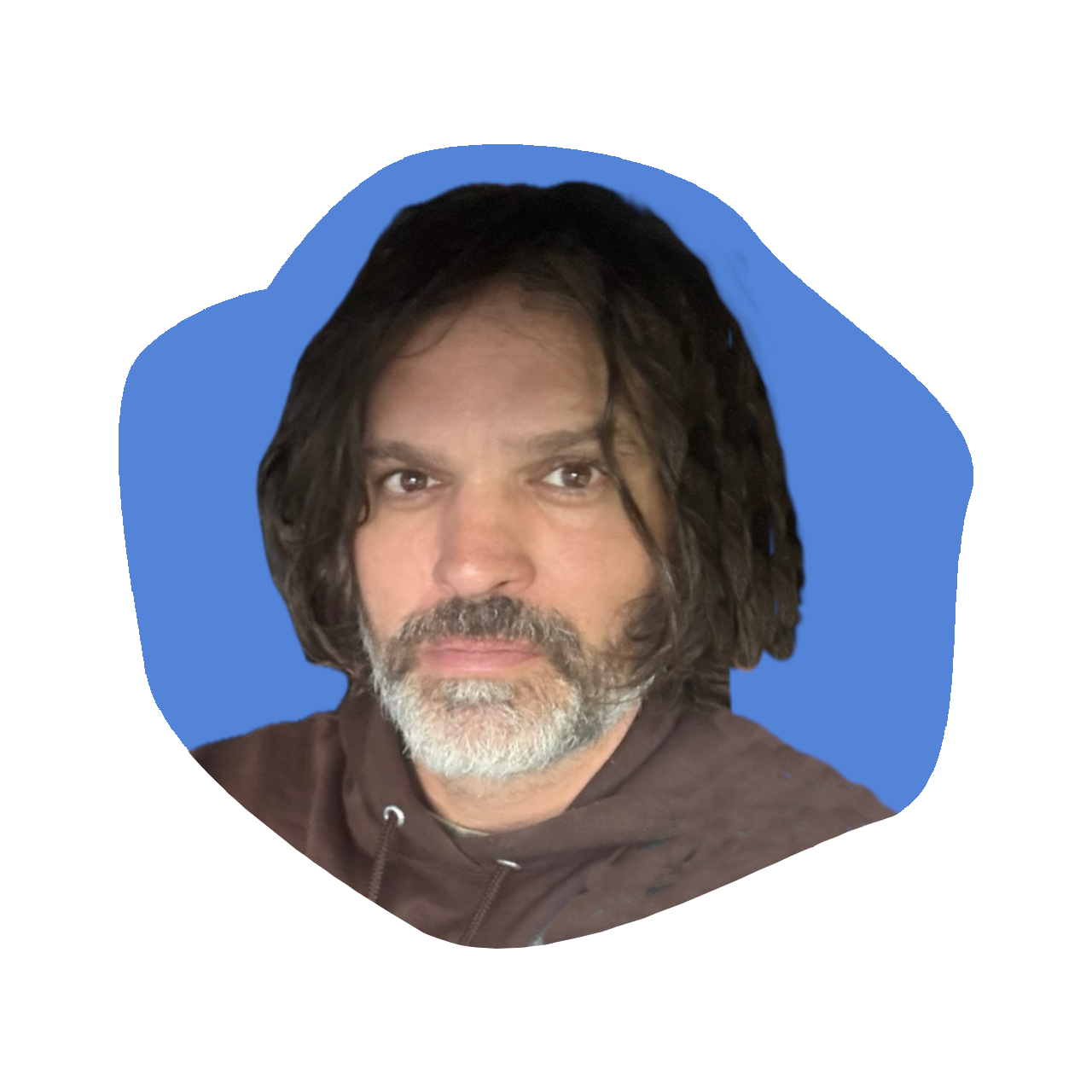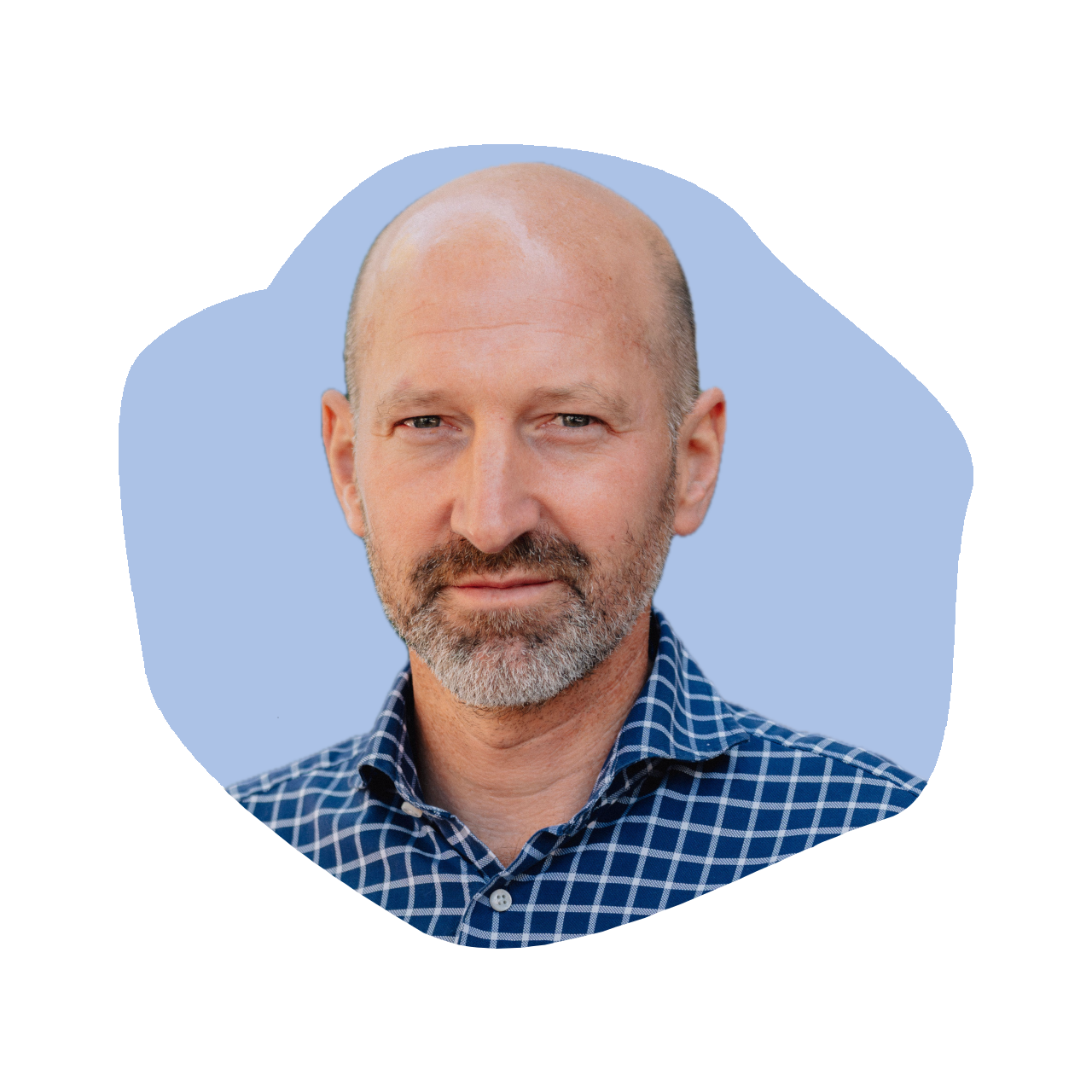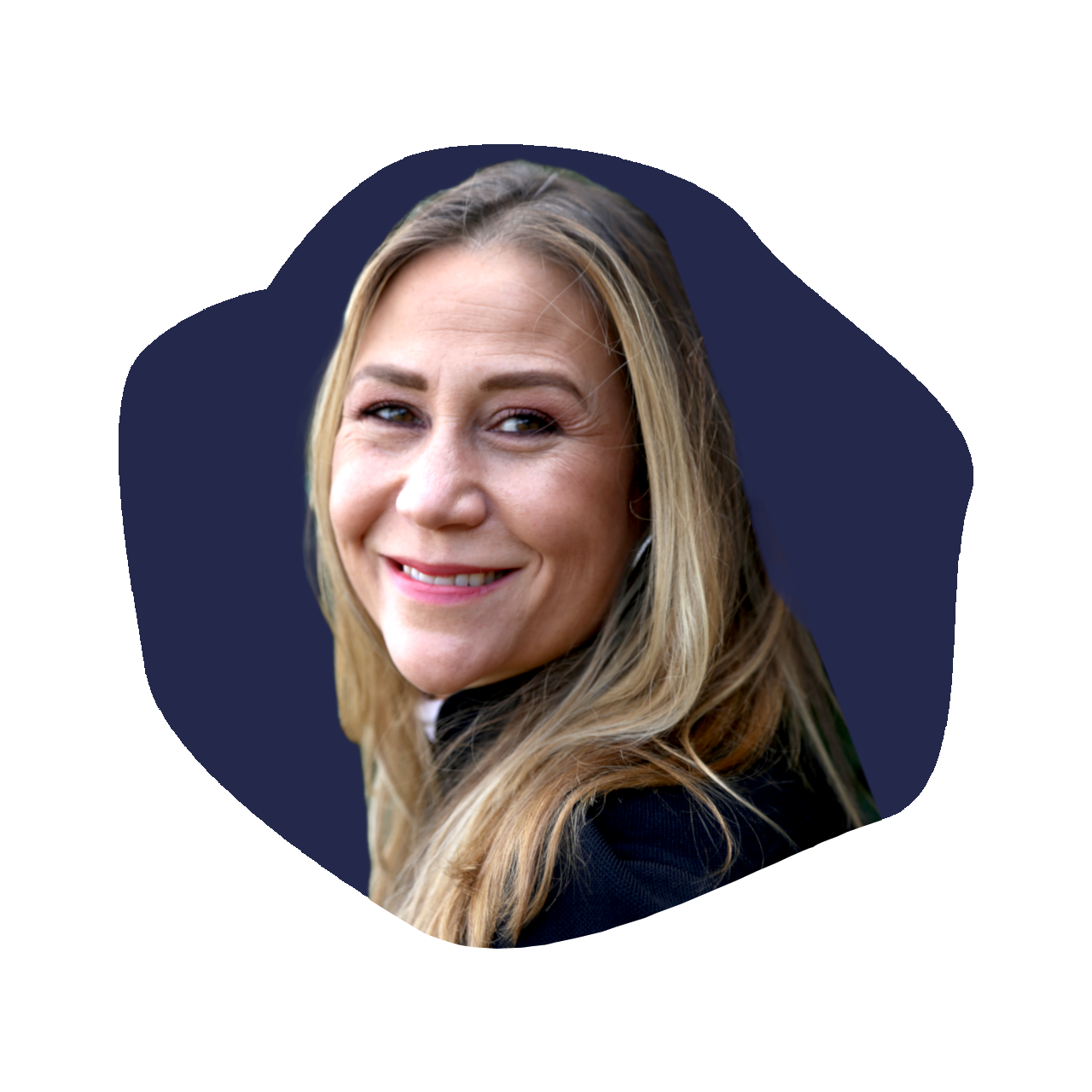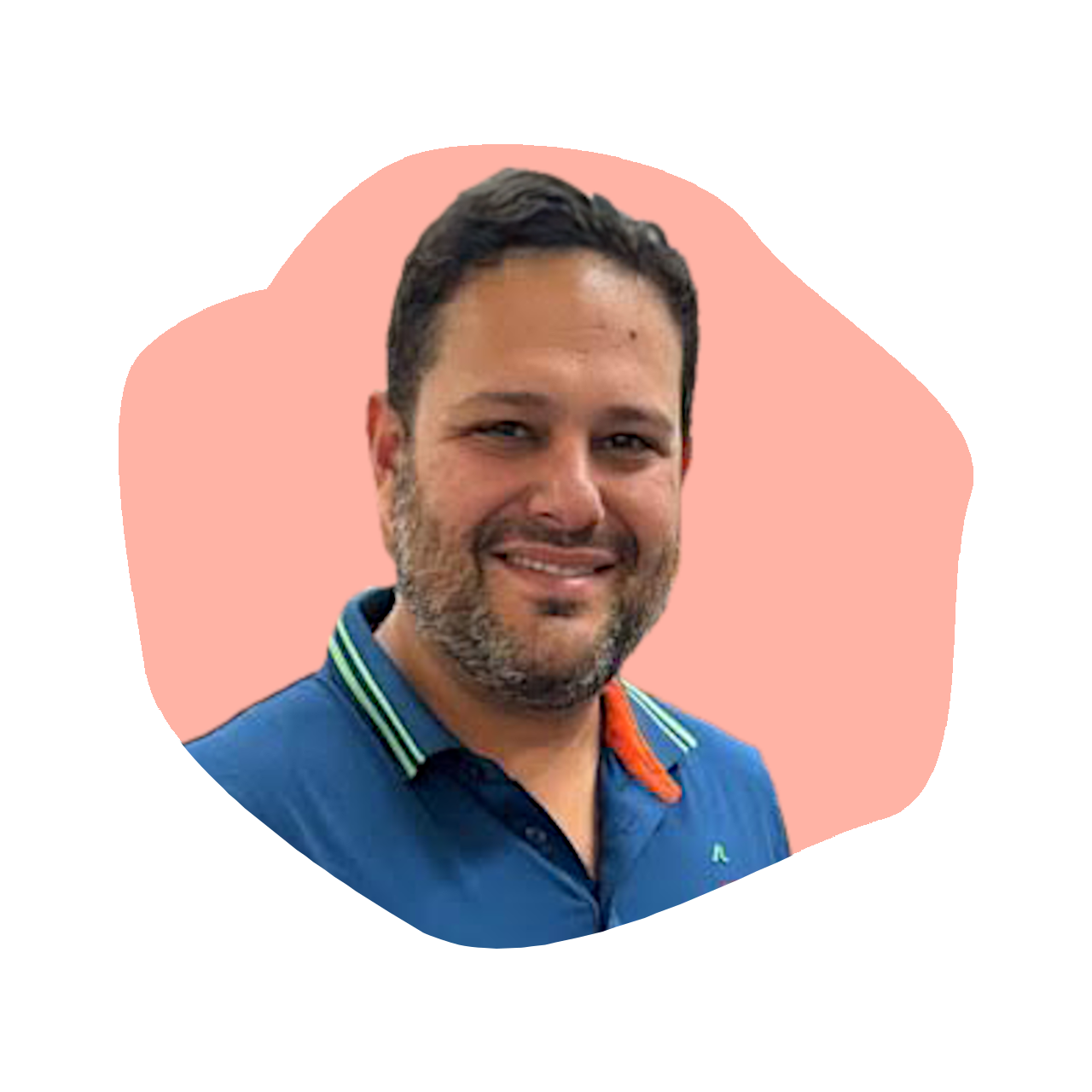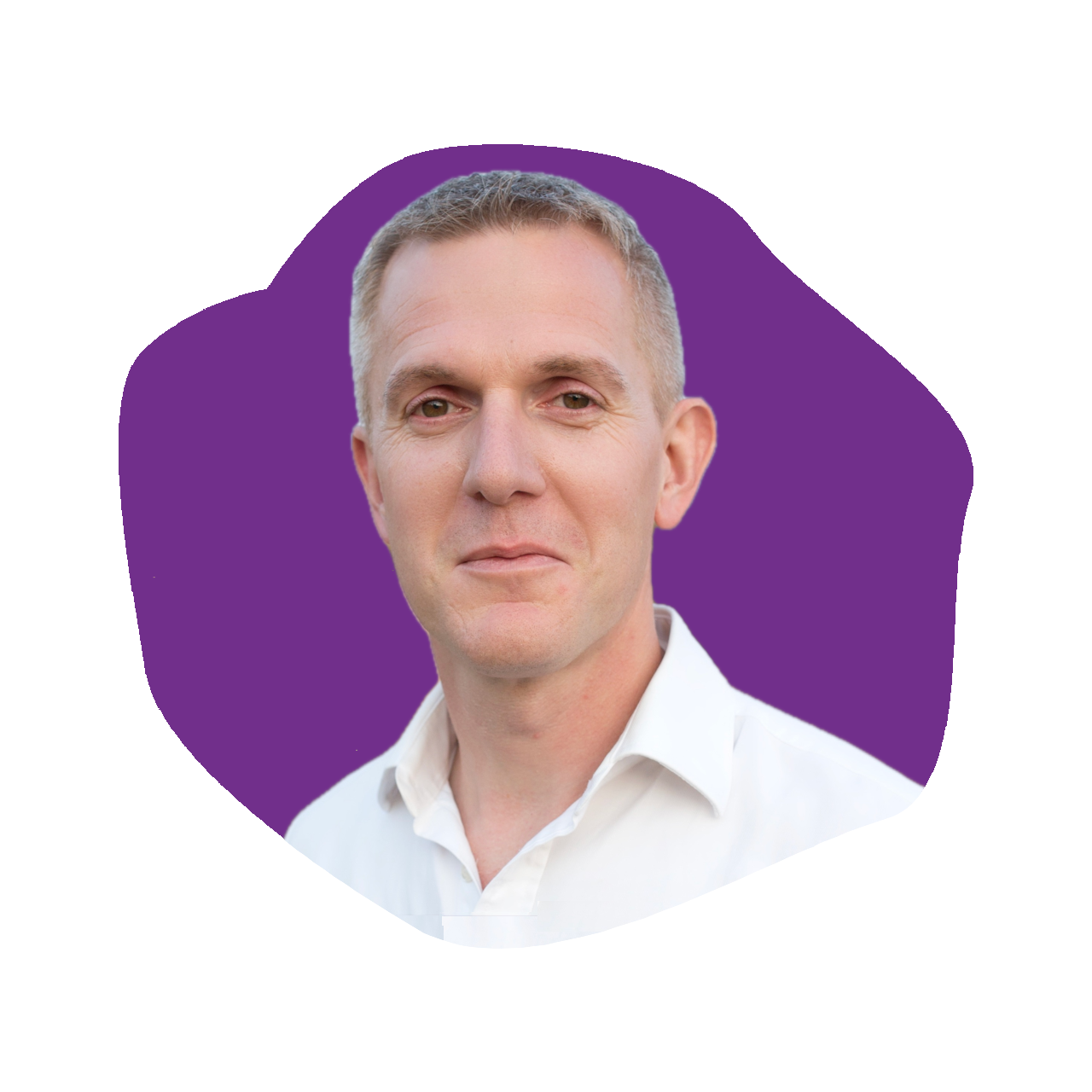Eric Dawson: CEO of RIVET
Episode 629
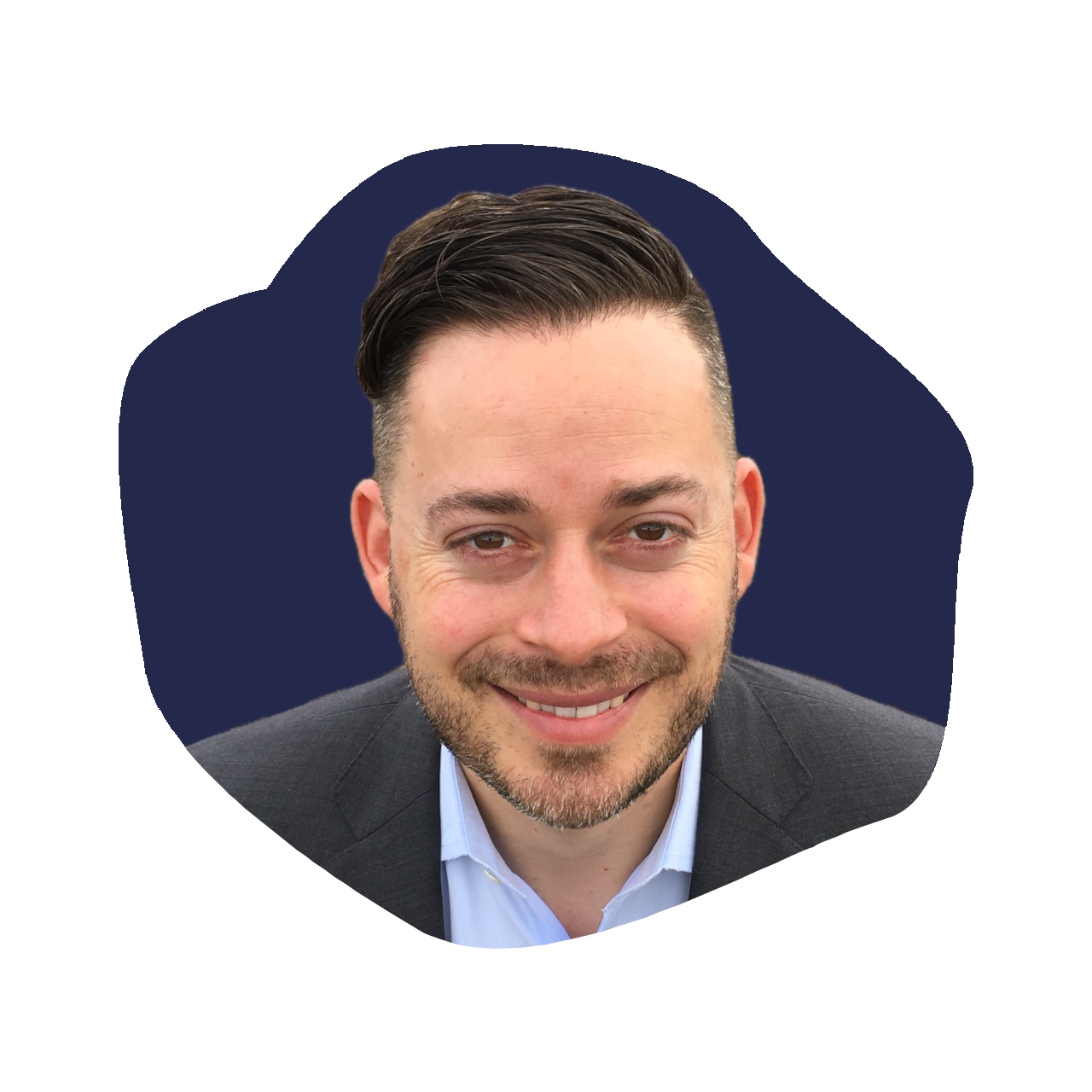
On this episode of The Kara Goldin Show, I’m thrilled to be joined by Dr. Eric Dawson, Co-Founder and CEO of RIVET, an innovative social impact brand that’s leveraging the power of Gen Z to drive global change. With an impressive background that includes three degrees from Harvard and a doctorate in Leadership and Innovation from NYU, Eric has dedicated his career to empowering young people around the world. Through RIVET, he’s built the world’s first consumer-facing micro-financing platform, designed to harness the collective influence of Gen Z to support young social innovators across the globe.
In our conversation, Dr. Dawson shares his journey from academia to leading a transformative organization, his deep commitment to youth-driven change, and how RIVET is redefining social impact by funding innovation in “capital deserts.” We explore the challenges and rewards of working with Gen Z, the role of brands in empowering youth, and Eric’s vision for a future where young people are the catalysts for solving the world’s toughest problems. If you're curious about the future of social impact, youth innovation, and the power of collective action, you won’t want to miss this episode. Tune in now on The Kara Goldin Show!
Resources from
this episode:
Enjoying this episode of #TheKaraGoldinShow? Let Kara know by clicking on the links below and sending her a quick shout-out on social!
Follow Kara on LinkedIn – Instagram – X – Facebook – TikTok – YouTube – Threads
Have a question for Kara about one of our episodes? Reach out to Kara directly at [email protected]
To learn more about Dr. Eric Dawson and RIVET:
https://www.linkedin.com/company/rivet
https://www.linkedin.com/in/eric-dawson
https://www.rivet.org
Transcript
Kara Goldin 0:00
I am unwilling to give up that I will start over from scratch as many times as it takes to get where I want to be. I want to be. Just want to make sure you will get knocked down. But just make sure you don’t get knocked out, knocked out. So your only choice should be go focus on what you can control. Control. Hi everyone, and welcome to the Kara Goldin show. Join me each week for inspiring conversations with some of the world’s greatest leaders. We’ll talk with founders, entrepreneurs, CEOs and really, some of the most interesting people of our time. Can’t wait to get started. Let’s go. Let’s go. Hi everyone. Thrilled to have you here with us today and thrilled to dive deep into the world of social impact with our next guest, Dr, Eric Dawson, who is a true pioneer in empowering the next generation of change makers. Eric is the CEO and co founder of an incredible organization called RIVET. And if you haven’t heard about RIVET, you’re going to be very, very excited to hear all about this brand that he has built, started just about three years ago. And it’s all about the power of Gen Z’s collective influence to fund young social innovators, and I’ll let him dig a lot more into that and describe that. But Eric’s story is one of relentless commitment, and he’s not just talking about change. He’s actively building the platforms that make it happen, which I absolutely love, and he’s tapping into this untapped human potential of 1.8 billion young people, Gen Zers worldwide, that is definitely, definitely the future for us all. So without further ado, welcome Eric. How are you?
Eric Dawson 1:57
I’m great. Kara, thanks so much for having me, and thank you for for telling the stories that don’t always get told about what it means to be an entrepreneur, what it means to create. It’s a it’s it’s a gift to have have your voice, your your questions out there in the world. So thank you, absolutely.
Kara Goldin 2:15
Let’s go back to day one, when you decided to launch RIVET, what was the problem that you saw out there? And how did you decide to say, I need to go do this.
Eric Dawson 2:28
It’s a great question, right? That the origin story. And actually, if you don’t mind, it actually started from my own experience as a kid. I had some bumps in my childhood, and it was, it was a really pissy adolescent, and I got my start as a 14 year old youth organizer. I went to a pretty large high school in central Ohio, and it was the start of the inclusion movement, which meant that kids who had disabilities have been kept in separate wings of the school, were being mainstream for the first time, and, you know, getting the crap beat out of them, you know, humiliated, made fun of, and it bothered me to my core. And so I began organizing and my high school to change the culture of my high school, 300 students, big place, and then create a program for every fourth, fifth and sixth grader in my district to also learn these disability awareness skills and Kara for me, it was the first time I got to feel powerful, not in spite of being young, but because I was young, right. There are things that I could do that my principal and teachers couldn’t do as a young. Person. Got a scholarship to go to college, which opened up a lot of doors for me, and started my second venture at 18, which was basically a social entrepreneurship education program, so going into schools teaching other young people how to be powerful, how to create projects. And ran that for 30 years, scaling across 166 countries. That organization, piece first, is still going strong under new leadership, and what I kept bumping up against wasn’t the brilliance of young people, but their access to capital. So there are 1.8 billion or so young people on the planet. We talk about young we’re talking about under 30, right? So we’re talking about pre teens, teens, young adults. They are the greatest untapped human capital resource we have for good, right? If you look at every major movement that’s taken place over the past 120 years, the workers rights movement, marriage equality, the Arab Spring, young people have sat at the center of that work. And that’s true for the for profit world, right? If you take the five largest companies by market cap, the average age of their founder at the time of founding was 25 young people innovate, they create, they lead. That’s the good news. The bad news is that 85% of these young people live in a capital desert, right? They’re in a refugee camp in Jordan. They’re in a favela in Rio. They’re in public housing. In Leeds, they’re in places where they don’t have access to get started. And what that means is, if you don’t have school money or family money, you never get something off the ground. That’s what RIVET wants to fix. We have built the world’s first micro financing platform for young social innovators. So think about Grameen Bank Donors Choose Kiva, those platforms that let a little bit of capital get in the hands of an entrepreneur to get started. We’re taking those same principles and making available to young person in their moment of obligation. So they’re watching bodies taken out of their school because of a school shooting, or they realize that their friends don’t have jobs, or their schools are failing them, and they want to do something. We want to give a million of those young people their first Yes. And so that was the inspiration. How do we how do we turn on the spigot of all that talent resources by providing a little bit of startup capital to a lot of young people.
Kara Goldin 6:02
That’s awesome. And so the focus is not just it’s global. It’s not just in the US. What percent of your the people that are part of the river program are outside of the US versus inside the US?
Eric Dawson 6:20
It’s a great question. So we’re a dual market system. So on one side we’re helping young people change the world, and then the other side we’re helping young people fund it. So the coolest part of RIVET is this fund that we’re raising, this global fund that will support young people all over is going to be funded by Gen Z themselves. Gen Z, your kids, my kids, controls $3 trillion of consumer spending as of 2020 that’s trillion with a T. By 2030 that will be $12 trillion now I don’t have an MBA. I’m not a finance guy, but I think the technical term for that is a crap load of capital. And as every marketer knows, they’re a very different generation, right? They will cancel brands based on their social practices. They will spend more, wait longer for products that align with their values. So we have a whole generation that doesn’t want to just be consumers when they shop, they want to be citizens, and so what RIVET is built is a brand mark. So we partner with companies to create consumer experiences, whether it’s buying a pair of shoes or going to a concert or getting a Character Pack in a video game, wherever young people engage. We want to be there with a co branded product that young people can buy, and then a portion of what they spend goes to fund other young people. And so the beauty of our system is there are no victims in our story, right? Whether you’re a young person buying a RIVET co branded Spotify playlist, or you’re a young person in Atlanta who wants to stop community violence, you all get to be powerful. And so our community is about 5050, US and non US based. Some of those are the young change makers who are creating projects that we’re funding, and some of them are young people just buying what they love, turning their everyday purchases into philanthropy. So
Kara Goldin 8:23
can you name an example of maybe a co branded opportunity that you’ve, that you’ve launched, that has, has really kind of, you know, given you the, I guess, the ability to see that you have something here. Maybe what was your first one that you did?
Eric Dawson 8:46
Yeah, we talked a lot at RIVET about our first Yes. You want to be young people’s first Yes. And you know, as an entrepreneur, the first Yes is the hardest, right, getting that first person to sign up, the first store to take your product. So for us, our first yes was fun co they’re a global company. They make those collectible pops figures, and they came to us with a problem. They want to do more strategic philanthropy. They wanted their philanthropy not just to sit in their CSR side, but in their marketing side, their employee engagement side. They want to create something that felt holistic. And so we’ve done four pops figures with them, each one, SpongeBob, Wonder Woman, Spock captain. Planet has been connected with a story of a young person that has gotten funded through RIVET. So you as a consumer get to see directly where your consumer power is going what I love about the partnership, first of all, it’s helped us fund over 1000 projects across 120 countries, helping young people tackling everything from clean drinking water in Egypt to employability in rural Colombia to bullying in the United States. But that direct can. Tumor experience, where a young person gets to know when they buy this product, a transparent portion of what they’re spending is going to fund their own generations ideas for changing the world. Very,
Kara Goldin 10:12
very cool. What’s the average amount of dollars that go towards these projects that that RIVET is supplying?
Eric Dawson 10:19
So we fund under 1000 and so I use the term micro finance because it’s something that people understand. It’s really micro philanthropy. It’s really a cash transfer. So it’s giving a young person a little bit of money to get started. So our average grant size, if you look at all 1000 1100 that we’ve given out, has been $430 that’s the average grant size. And I know a lot of people listening think, well, that’s not much money. Like, how do you get started? One of our first grants went to a young man named Walter. So Walter lives in rural Uganda, and women in his community, when they start menstruating, they have to exit school. They have to stop going to school. Most of them get married, and most of them start having kids. And he had experienced where his sister dropped out of school, got married, had four kids while she was a teenager, and Walter wanted to interrupt that cycle, so with our local partners, peace first, we gave him $250 Kara. So think about that. $250 he bought four petal sewing machines and began making reusable menstrual pads for every single girl in his community. So these girls are staying in school. They’re delaying marriage, they’re delaying childbirth. I went to visit him to see this project in action, and the thing that blew me away was who he had making the pads. He was teaching every young boy in his community how to make menstrual pads for the girls in their lives. It’s incredible. I went and asked. I went and asked one of them, like, why are you making these pads? He looked at me like I was an idiot. And he said, This is a direct quote. Kara, he said, menstrual health is my responsibility. I’m raising a teenage boy. I love him to death. He’s a bit of a feminist. Those words will never come out of his mouth. So Walter’s not only solving a problem, he’s changing a culture. Those boys are gonna grow up to be fathers and teachers and community leaders husbands and I mean no disrespect when I say this, but that change doesn’t happen if a group of kids in Berkeley, California put pads in a box and send them to Walters village. Right? His community is leading that change. It was his idea, his invention. We just became, we just became the catalyst. And that was $250
Kara Goldin 12:47
Wow, that’s amazing that. I mean, just that small change, right? And then are you, how often are you meeting with, with the people that are joining you? I mean,
Eric Dawson 12:59
if that could be my full time job. If I could just hang out with cool young people, I would be, I would be a happy CEO. But as you know, we as CEOs don’t, don’t always get to choose how we spend our time. So what I love about what RIVET is building is we’re building on existing architecture, right? So we don’t make products, right? Adidas knows how to make shoes. We just give them an opportunity to market those shoes in a way that speaks to Gen Z. It’s similar for our philanthropic work. We distribute our funds through the existing youth development infrastructure, right? So think about teachers, Boys and Girls Clubs. Think about aid workers. So there’s about $11 trillion that was spent last year to teach, vaccinate, Medicaid, mentor coach young people all over the world. We’re repurposing those roadways to reach young people, and so our job is to support all these amazing Red Cross volunteers and teachers and after school workers to be our talent scouts. So they find the young people, they mentor the young people. We provide the capital that brings it together. So,
Kara Goldin 14:11
so, so interesting. What’s something that’s surprised you? I always share with entrepreneurs that you know that or and people who are interested in entrepreneurship that the idea never once, it starts to scale. It changes, right? It morphs into something different. What’s something that has has really surprised you about, you know, kind of the the the changes, the the state of the morphing state of of where it’s gone, what is what’s kind of surprised you about it.
Eric Dawson 14:47
I love that question, and I love the Insight beneath that question, because one of the things that that entrepreneurs need to realize is where you start is never going to be where you end up. And. And one of the hardest things is letting go of things that you feel so certain about when the data in the marketplace is telling you something different. So one of the first things that I thought when we would build RIVET is that, you know, brands would just get this and be like, sure, like, Absolutely, let’s do this. And we had a lot of success early on, which, which was probably not, not always great to hit, hit a few things out of the park, because then you think every ball that comes your way is going to be a home run. What has surprised me is it our brand partnerships. We built a system that was fairly complicated and bespoke, so we had to deal with, you know, you know, like a beverage company and say, like, what are your priorities? How do you want to market this? How can we meet your needs? Are there issue areas you want to focus on? Geographies? Let’s build this together. And brand leaders wanted something turnkey, right? They wanted in a box. Like, how much money do I contribute? When do I get the content back? Um, that that this idea about creating a bespoke system that really met the needs of every brand, which I thought brands would love, actually made it much more difficult for them to participate. Because if you’re a marketer, you’re making hundreds of decisions every week. My job is to make that easier, and I totally missed that point. The second thing this is probably true for every entrepreneur. I think things are gonna happen twice as fast for half as much money. And you know, our business model is pretty simple. We’re set up as a charity, we function as a consumer facing brand, and we operate as a, b to b. And so what that means is we keep 10% of the revenue that comes in through our brand partners. Partnerships to cover our costs of operating, then 90% goes out the door to the organizations that are supporting young people and young people themselves. And so, you know, I thought it would take about 18 months till we ramped up big enough that that partnerships would cover our nut. It’s probably more like five or six years.
Kara Goldin 17:01
Wow, that’s, that’s, it’s surprising, and it’s not surprising. Yeah, yeah, that’s it. That’s so interesting. So you’ve studied leadership at kind of the highest levels and and then you launched this, this organization that is really, really helping young kids, young adults. I should say, what’s been kind of the bit the best piece of feedback that you’ve gotten from individuals, I think you you almost have, when I think about your business, you’ve got, you know, probably multiple audiences, but you’ve got the the businesses that you’re partnering with, and then you’ve also got the the youth that you’re actually helping. But what are some of the stories that maybe you’ve encountered, you’ve heard, that have really been inspiring to you that have really helped you to know that you’re doing this, right?
Eric Dawson 18:05
So we built RIVET with young people. So young people have been at the center of everything that we’ve done. They sit on our board. There’s a group of young people called the RIVET assembly. They sign off on any brand partnership that we want to do. I can negotiate a multi million dollar deal with a brand. This group can veto it, right? They’re not advisors, right? They’ve got, they’ve got decision rights. We are a brand, a youth brand, that is building our brand on the back of other brands, right? It’s complicated, right? So, you know, we partner with fun CO, right? So they’re helping us build our brand, Adidas, Nike, any company we partner with, we are, we are using their brand relevance and brand equity to build our own. And that creates complications. Right? A brand partner is going to do things that young people aren’t going to like, and young people are gonna do things that brand partners aren’t gonna like, and in some ways, we create a buffer. And so I was interviewing a group of young young people about how to navigate this, and I got this great advice from a young man who who said, If you can’t be pure, be honest. If you can’t be pure, be honest. And that has that has stuck with me, because I think a lot of brands get into trouble. So Maitreya is in Buddhism, and one of the things the Buddha teaches us is that our suffering comes from misaligned expectations, right? So it’s like, you’re so excited to see a movie, right? And it’s good, but it’s not great, versus your kids are dragging you to move you have no interest in seeing but actually, it wasn’t so bad, right? Our life gets lived in that delta right from from what we expect and what we actually get. And so a brand, at the end of the day, is a promise that we make to our customers, right? That that’s what it is. And so how do we, as RIVET, set that expectation, that promise in a place? Realistic about what we can do. And so if you can’t be pure, which we can’t be right, we’re not going to be able to be perfect and fund everything that we want to fund. And some of our brand partners are going to be complicated. What we need to do is be really honest with our young people. And and so I hold that at my core of every decision is, how do we be honest and transparent around the choices that we’re making
Kara Goldin 20:27
love it so so you’re investing time, energy commitment into a generation that’s often labeled as distracted or overwhelmed. What gives you confidence that Gen Z has what it takes to really change the world. I
Eric Dawson 20:45
mean, the statistics are on their side. We worked with with a consulting company to look at impact that had scaled over the past 120, years, dozens of case studies, and the only through line was they were powered by young people. I’m a Gen Xer, and the data on us. When we were coming of age, about 12% of us wanted to change the world with our with our jobs or vocations. For millennials, that percentage was 36 and for Gen Z, it is 60% we are raising the most multicultural, most connected, most do Gooding group of human beings have ever produced in the history of the human race. Our job is to be allies to them, and I think that’s something that older people struggle with. I know I struggle with it as a parent, as a manager, is what does it mean to show up as an ally, to support young people in their work, in their agendas. I’ve been talking to a number of young people because there’s, there’s this narrative that’s also out there where older people said, Okay, we messed the world up. You all are going to fix it, right? And that’s a hopeful message, right? This generation gets it. They care. When I talk to young people, they’re like, not so fast, because y’all mess this up. How do we work together on this? And so I think it is those blended models. It is it is, you know, young people’s energy, older people’s wisdom. It is brands. It is NGOs. The more energy and passion we can bring to the table, the more lasting the change we’re going to see. And young people are the imagination energy that’s going to power full stop.
Kara Goldin 22:28
So what’s one rule or piece of advice you would suggest to someone who is looking to start a social impact initiative company, however you want to view it,
Eric Dawson 22:45
there are three rules I live by, and they’re centered in three C’s. So the first is the idea of compassion. Make sure you’re talking to people who are different from you. Make sure you’re talking to people who see the problem differently, make sure you’re talking to people and working across lines of difference. So whatever that means, if that means having a diverse team, if that means getting data from people who sit at the other side of an issue, that’s where our learning comes from. Our learning doesn’t come from our echo chambers. Our learning comes from places of disagreement and so that, that compassion, that being open to seeing the world differently. The second is courage. You got to take risks. They’ve got to be safe risks. You know, I’ve funded a lot of projects, and I’ll be honest, like, this is, this is me straight talking like I could fill projects I fund by, you know, folks who have a lemonade stand and raise $10,000 for orphans in Somalia or collect used books for kids who need books. Those are great projects. I mean no disrespect for them, but there’s no risk in doing that work like I’m really interested in a young person like we Chen, someone who I’ve known or worked with for years, who led an eight day boycott of his high school in Philadelphia after dozens of students got assaulted all Asian immigrant students in one day. And what it means to be a 17 year old who speaks very little English and to stand in front of your school outside it and say, I’m not going to participate in a school that doesn’t see me as human. A lot of us will move from a place of, what do I get to, what can I give? But very few of us will move from the place of what can I give to, what am I willing to give up? And I’m really interested, for those of us who want to start social impact work is that space, where are you willing to take risks? That’s courage. And then the third is collaboration. Find your team, find your accelerators, find the folks who you can build this with. It is impossible to change the world alone. We tell the wrong stories, right? The Civil Rights Movement wasn’t Dr King. It wasn’t Selma. It’s hundreds of 1000s of people, mostly women and young people, sitting in church pews and around kitchen counters deciding they were going to be different. That’s what changes the world, right? That’s what we need. We need, we need, we need small change at scale.
Kara Goldin 25:17
So you, I love the connection that you started with talking about, you know yourself and and the experience that that you had, you’ve also, you’ve got degrees and tons of other experience and research education. But if you had to credit one thing that kind of prepared you to be able to do what you’re doing today, what do you think that is?
Eric Dawson 25:39
Well, my mom’s listening was absolutely my mom. You know, being raised by being surrounded by adults who took me seriously in multiple areas of my life was incredibly transformative. But if I’m really honest, you know, pretending it’s just you and I over a cup of coffee, my anger, you know, being it being an angry kid, and figuring out how to wrestle that anger into something useful, that that’s that’s what drives me, that the fact that the world is a fundamentally beautiful but also fundamentally unfair place, and if I am lucky to get 8090, years out of this life, I want to know that I have made it more fair.
Kara Goldin 26:29
I love that. So five years from now, where what do you hope for RIVET
Eric Dawson 26:37
so RIVET lives or dies based on whether or not young people think this is cool. So my hope is that my kids and your kids buy RIVET like, That’s it, like they look for RIVET products. RIVET is the brand that young people turn to for their generations. Ideas, full stop.
Kara Goldin 26:55
That’s awesome, and you’re doing it in over you’ve funded over 1000 projects. Very cool. How are you getting the word out about RIVET, by the way,
Eric Dawson 27:05
so we’re doing the work that brands do. So we have young influencers who tell the story. We’ve got about 10,000 young people in our community between socials, Discord, super fans, so largely through word of mouth. As we enter 2025 we’re going to be a lot more active in marketing spaces. We just held our inaugural RIVET con, where we brought together brand leaders, young social entrepreneurs, impact investors, three groups that never get together. We held that in Dubai, actually, Sharjah in the UAE next year. We want to bring this to the United States. And so we want to create this, this kind of event where, you know, a young person like Walter, who’s, you know, ending child marriage in rural Uganda, is having conversations with the, you know, CMO of P and G. We want to create these spaces that platform young people and brand leaders as peers to have really cool conversations.
Kara Goldin 28:11
It’s very cool. Eric, thanks so much for sharing all about RIVET and the journey. We’ll have all the info in the show notes, but really appreciate everything that you’re doing and the impact you’re having, and encourage everyone to join the mission. And thank you again. We’ll we’ll, like I said, have everything in the show notes, so have a great rest of the week.
Eric Dawson 28:36
Thanks, Kara. Appreciate you.
Kara Goldin 28:38
Thanks again for listening to the Kara Goldin show. If you would please give us a review and feel free to share this podcast with others who would benefit. And of course, feel free to subscribe so you don’t miss a single episode of our podcast. Just a reminder that I can be found on all platforms at Kara Goldin, I would love to hear from you too. So feel free to DM me, and if you want to hear more about my journey, I hope you will have a listen or pick up a copy of my Wall Street Journal, best selling book, undaunted, where I share more about my journey, including founding and building. Hint, we are here every Monday, Wednesday and Friday. Thanks for listening, and goodbye for now you.





